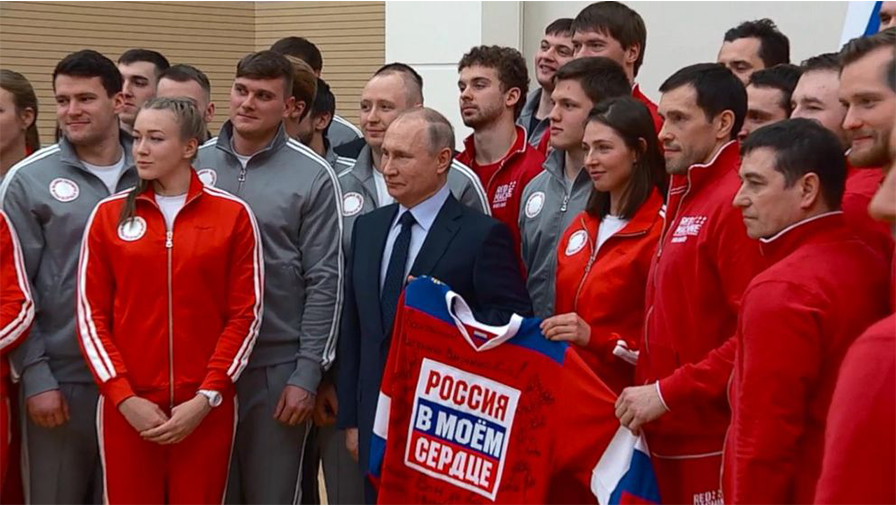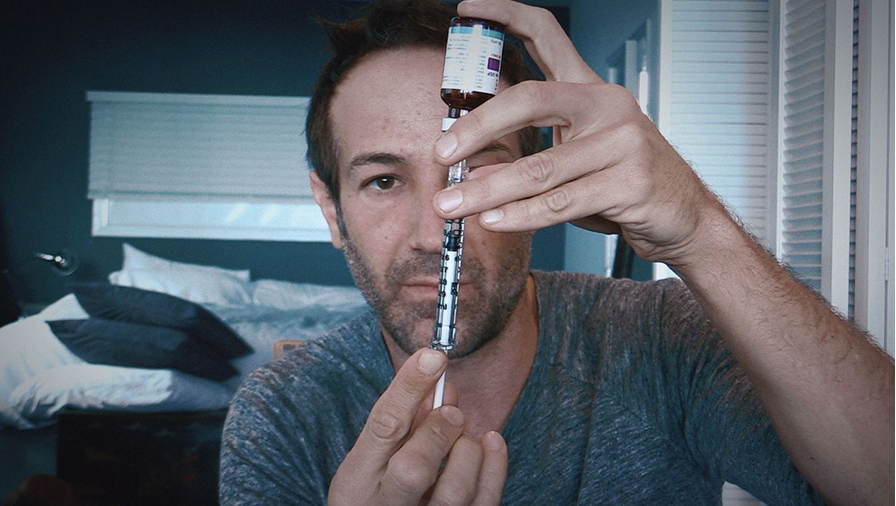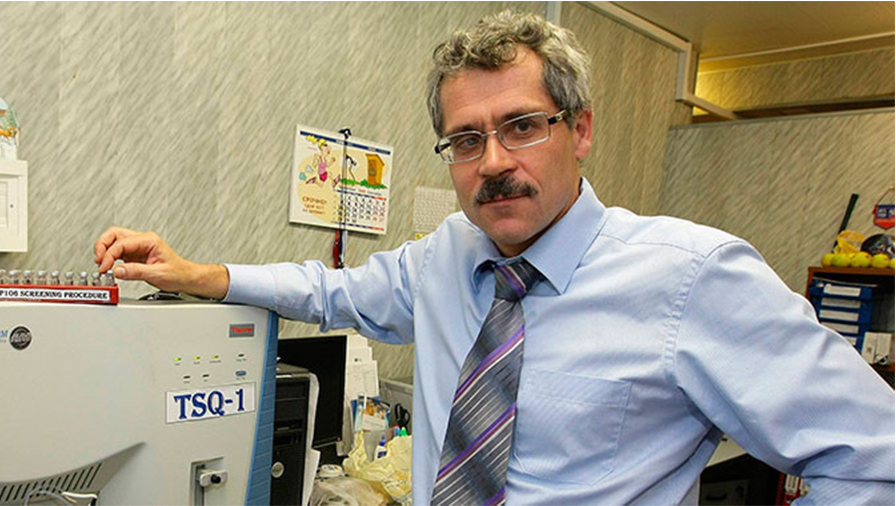Sport vs science: How doping subverted the Olympics
Book Review: Russia’s top cheater comes clean in his memoir.
Book Review: Russia’s top cheater comes clean in his memoir.
When Covid-19’s ‘’Dr Doom’ – University of Otago epidemiologist Michael Baker – warned against New Zealand participating in the troubled Tokyo Olympics, no one took the bait. But even if most of the world also rejects his advice, the Games will be far from normal even if they go ahead.
Baker’s reservations may be pandemic-related. He could also point out the Olympics in the past have been a sham thanks to the intervention of science.
On another front, lab scientists are also being called out for their role in turning coronaviruses into potential weapons of war. This arises from the revelation by Australian investigative journalist Sharri Markson that US authorities have a 2015 document on biological warfare by Chinese scientists and public health officials.
In a preview of her forthcoming book, What Really Happened in Wuhan, Markson says the US inquiry into Covid-19 uncovered a 261-page Chinese language report called The Unnatural Origin of SARS and New Species of Man-Made Viruses as Genetic Bio-Weapons. Like Covid-19, the 2013 SARS (Sudden Respiratory Syndrome) pandemic was first identified in China.
Markson’s book has disturbing implications, as scientists working for authoritarian governments are not known for their adherence to rules we expect from their equivalents in the West. She quotes a US State Department report in 2020 on arms control agreements: “The US has compliance concerns with respect to Chinese military medical institutions’ toxin research and development because of the potential dual-use applications and their potential as a biological threat.”
That concern is real as the world has a model to work from. It was the state-sponsored doping of athletes to win gold medals at the Olympics, perfected in the Soviet Union, widely imitated in other communist bloc nations such as East Germany, and continued in the Russian Federation under President Vladimir Putin.

Uncovering the scandal
Russia has been suspended from the Olympics as a result, and so will be of no concern to Baker. But approved individual athletes from Russia can compete as neutrals, with no flags, anthems or reflected glory.
This would not have happened without some whistleblowers, investigations by journalists and filmmakers, and finally, tough decisions by anti-doping and Olympic officials. The biggest breakthrough came from American amateur cyclist Bryan Fogel, who set out to make a film about doping in that sport and lax attempts to control it.
Lance Armstrong had demonstrated how easy it was to beat the anti-doping system. Fogel aimed to imitate him and made contact with Russian former athlete and chemist Grigory Rodchenkov, who prescribed a drug regime that could be undetected.
The result was Icarus, which Netflix released in 2017, winning that year’s Hollywood Academy Award as best documentary. In it, Rodchenko visited Los Angeles to check on Fogel’s progress. A subsequent visit produced Fogel’s ‘scoop’ as Rodchenkov, now head of the Anti-Doping Centre (ADC) in Moscow, revealed the extent of Russia’s programme for hundreds of elite athletes.
In particular, he told Fogel how Russia’s gold medal prospects could be guaranteed ‘clean’ through manipulation of their urine tests.
The most egregious was the scheme that switched the entire Russian team’s samples at the Sochi Winter Games in 2014. This involved the FSB, the secret service that replaced the KGB, and was aimed at restoring Russia’s prestige after its woeful performance at the previous Winter Games in Vancouver.

Defection to US
To back up his allegations, Rodchenkov chose to defect to the US, taking with him all his evidence and records, while leaving his wife and child behind. He and Fogel took their story to the New York Times, which was enough to persuade the US Department of Justice that Rodchenkov was a valuable witness.
The International Olympic Committee and the World Anti-Doping Agency( WADA) realised they no longer could be fooled by the cheating Russians, and had to act quickly to restore their credibility.
Rodchenkov has now produced his own version of events, including those subsequent to the fallout from Icarus. The Rodchenkov Affair starts by setting out how sports testing labs operated in the Soviet era.
“The real purpose of doping is not to build muscles, but rather to help the body recover from competition or survive the rigours of training,” he writes.
Doping began in the 1960s when most labs could not detect steroids and other substances. The function of Soviet labs was not to catch cheats but to ensure users were not caught.
Soviet athletes, coaches and officials who could travel abroad were highly privileged citizens and celebrities. The key sports to gain protection against detection were track and field, weightlifting, swimming, and cycling. Team sports such as soccer and hockey did not make the cut, nor did archers, gymnasts and ice skaters.
The function of Soviet labs was not to catch cheats but to ensure users were not caught.
Olympic boycotts
The Olympics fell foul of politics in 1980, when the Moscow Games was boycotted by many Western nations over the Soviet invasion of Afghanistan. The USSR did the same to the Los Angeles Games in 1984, partly because (according to Rodchenkov) a Russian ship containing a secret lab was prevented from docking.
Anti-doping measures were in their infancy and the Soviets were always ahead of the game, with new substances such as those created originally to enhance the endurance of cosmonauts and soldiers.
Rodchenkov is open-minded about the use of steroids, synthetic testosterone and many other substances, saying they allow older athletes to recover more quickly than their younger rivals, and are not dangerous if used properly. Their effect in practice is to give an extra ‘boost’ at the end of a race.
Their use in Russia was complicated by commercial as well as political infighting by the various sporting bodies. At one stage, Rodchenkov was arrested and interrogated by the Russian anti-narcotics agency for making money from athletes seeking clean samples.
That case was snuffed out when, according to Rodchenkov, he was put in charge of the ADC to ensure Russia’s triumph at Sochi. This deception required approval from the top (ie, Putin) and was as bold as anything that might be cooked up by hackers in China, Russia or North Korea.
The Sochi ‘switch’ of specified athletes’ daily samples was carried out each night by the FSB, which had a secret office inside the ADC’s Sochi lab and connected only by a “mouse hole” disguised as a plug fitting.
Biggest medal haul
Russia won its biggest collection of medals at Sochi but it wasn’t long before leaks appeared, initially by athletes who had failed to make the ‘clean’ list.
The first claims of cheating were aired in 2016 by the German TV channel ARD, which prompted a WADA report that detailed the, “systemic culture of doping in Russian sport”.
Though the Russian government initially stood firm against the allegations, as it still does today, Rodchenkov was forced to resign. It was then he considered defection, thanks to the intervention of Foley, who was making Icarus.

Since its release, Rodchenkov has been living under protection somewhere in the US. He was officially given political asylum in 2019 and also has a law named after him passed by the Congress, similar to that of the Magnitsky Act, named after American businessman Bill Browder’s lawyer who died in custody. The Rodchenkov anti-doping law, which has yet to gain Senate approval, gives the right of athletes and sponsors to sue Sochi officials for fraud damages.
Several of Rodchenkov’s associates have died prematurely since the Sochi scandal. Coincidentally, two of the doctors who initially diagnosed the poisoning of opposition leader Alexei Navalny had fatal heart attacks this year at ages 55 and 63.
Russia remains suspended from participating in the Olympics, though its anti-doping agency (not the disbanded ADC) has been reinstated by WADA.
As he did in Icarus, Rodchenkov frames his story with reference to George Orwell’s Nineteen Eighty-Four and Russia’s doctrine of ‘doublethink’ – being “conscious of complete truthfulness while telling carefully constructed lies”.
The reader can only agree that, despite his past deeds and with the loss of his family, Rodchenkov has paid a high price to be on the side of truth.
The Rodchenkov Affair: How I brought down Putin’s secret doping empire, by Dr Grigory Rodchenkov (WH Allen/Penguin Random House)
Nevil Gibson is a former editor at large for NBR. He has contributed film and book reviews to various publications.
This content is supplied free to NBR
Sign up to get the latest stories and insights delivered to your inbox – free, every day.